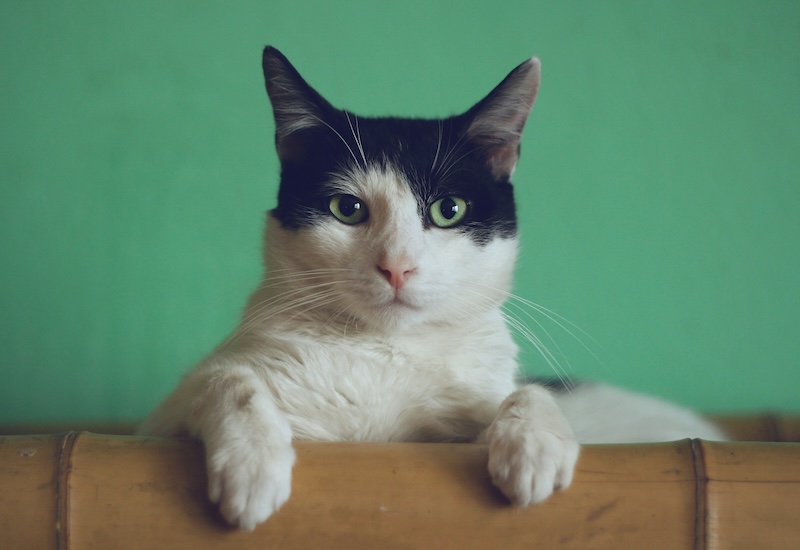The Feline Bordetella vaccine costs $10 to $30 on average per dose in 2025. If you’ve ever owned a dog, chances are you’ve heard of Bordetella at your pup’s vet appointments.
This common canine vaccine safeguards against a contagious respiratory infection, often compared to a human cold. But when it comes to cats, the decision whether to vaccinate your kitty against this infection isn’t as clear-cut.
Let’s explore how the vaccine works, its benefits, and answer the burning question: Does your cat really need the Feline Bordetella vaccine?
How much does the Feline Bordetella vaccine cost?
On average, the cost of the Feline Bordetella vaccine can range from $10 to $30 per dose. If you’re adopting a cat from a shelter or a breeder, chances are that they will have already provided your cat with this vaccine due to their increased exposure while living with many other animals.
The cost of the Feline Bordetella vaccine can vary based on factors such as:
- Where you live
- Whether it is administered at a veterinary clinic or a low-cost vaccination clinic
- If it’s part of a vaccination package
What is Bordetella?
Bordetella is a highly contagious bacterial infection that targets the respiratory system of mammals, including cats. Often referred to as kennel cough for pups, this infection is primarily caused by the bacteria Bordetella bronchiseptica and spreads easily among animals.
Cats that spend time in close contact with other animals, such as those in shelters, boarding facilities, or catteries, are at a higher risk of contracting the infection.
Once exposed to Bordetella, cats may start showing symptoms relatively quickly, which can include:
- Mild sneezing and coughing
- Nasal discharge
- Ocular discharge
- Fever
- Lethargy
- Loss of appetite
While the infection is often mild and can often be easily treated with antibiotics, it can be more severe in kittens, older cats, or cats with weakened immune systems. If left untreated, Bordetella may lead to secondary infections that complicate the illness.
Fortunately, a vaccine is available to protect cats from Bordetella, especially for those at higher risk of exposure and complications of the infection.
How does the Feline Bordetella vaccine work?

The Feline Bordetella vaccine stimulates the immune system to produce antibodies against Bordetella bronchiseptica, protecting cats from respiratory diseases, like upper respiratory tract infections.
Unlike most other vaccines, this vaccine is administered as an intranasal vaccine, which means that instead of injecting the vaccine with a needle, it’s sprayed or dropped into the cat’s nose. The cat breathes it in, and the vaccine helps protect them from diseases by activating their immune system through the nasal passage. Basically, it’s pretty similar to how humans use nose spray.
If you’re a cat owner, you might already be aware of the essential, or “core”, feline vaccinations your cat will need, such as the rabies vaccine and FVRCP vaccine, to fight against serious illnesses including rabies, feline panleukopenia, and feline viral rhinotracheitis.
The Bordetella vaccine is considered a “non-core” vaccine and is only administered to cats at a higher risk of exposure to the infection.
How often do cats need the Bordetella vaccine?
There isn’t a one size fits all kitten vaccination schedule, and you should always consult your vet to come up with the best vaccination schedule for your feline friend.
If your vet deems the vaccination necessary for your cat, they will typically receive a single dose at eight weeks of age, and then annual boosters.
As a “non-core” vaccine, the frequency of administering the Feline Bordetella vaccine depends heavily on a cat’s lifestyle and risk of exposure. Cats in shelters, or those spending significant time in boarding facilities are often at higher risk for exposure and will benefit from the vaccine.
If you have an outdoor cat, your vet may also recommend the annual Feline Bordetella vaccination in the event your kitty comes into close contact with an infected animal.
If you’re going on a month-long vacation and need to keep your indoor cat in a boarding facility, for example, it may be wise to consult your vet about vaccinating them against Feline Bordetella.
On the other hand, if you have an indoor cat that just stays at home making biscuits and doesn’t come into contact with other cats, there’s a chance your vet won’t recommend this vaccination at all.
Does pet insurance cover the cost of the Feline Bordetella vaccine?
Yes, pet insurance usually can include wellness coverage for vaccinations, including the Feline Bordetella vaccine, when they’re administered or supervised by a licensed vet. But the specifics will depend on the coverages you chose when signing up, as well as the deductibles and co-insurance you selected.
When you include the Puppy/Kitten Preventative Care Package on your Lemonade Pet policy, for example, your kitten will be eligible for coverage on up to six vaccines a year—which could include the intranasal Feline Bordetella vaccine.
This package could also help cover the costs associated with microchip implantation, spay/neuter procedures, heartworm, flea, and tick prevention, heartworm tests, and more.
For adult cats, Lemonade’s Preventative Care or Preventative+ Package also includes up to three vaccinations per year, which could help cover the costs of an annual intranasal Feline Bordetella vaccine, if your vet recommends the vaccine for your cat.
What are the potential side effects of the Bordetella vaccine?
The Feline Bordetella vaccine is generally safe, but like any medical intervention, it can have potential side effects post-vaccination. Most side effects are mild and temporary, including:
- Sneezing or nasal discharge: Since the vaccine is often administered through the nose, it may cause minor respiratory symptoms like sneezing or nasal discharge (which is like a runny nose) shortly after vaccination.
- Lethargy: Some cats might experience mild fatigue or reduced energy levels for a day or two following vaccination.
- Appetite changes: Occasionally, cats may show a temporary decrease in appetite after receiving the vaccine.
Severe reactions are rare, but it’s important to monitor your cat for any signs of an allergic reaction, such as:
- Facial swelling
- Difficulty breathing
- Vomiting
If any concerning symptoms occur, you should contact your vet right away, or bring your cat to the closest emergency vet.
Generally, the benefits of vaccinating against Bordetella bronchiseptica outweigh the potential for side effects, especially for cats in high-risk environments. Your veterinarian can help assess the risk and recommend the best course of action for your kitty’s health.
Before we go…
Assessing your cat’s risk and putting a plan together with your vet will help you protect your feline friend—from the often mild Bordetella infection to a potentially deadly rabies infection.
Investing in pet insurance early in your kitten’s life can help provide your fur fam with extensive coverage—from non-core vaccines to unforeseen accidents and illnesses as they grow up into adult cats.
Did you know that at Lemonade Pet you can cover your kitty with cat insurance from the time they’re two months old?
Click below to get your quote started today.
FAQS
Can an indoor cat benefit from the Bordetella vaccine?
Generally, indoor cats have a low risk of exposure to Bordetella and might not require the vaccine. However, if your indoor cat occasionally interacts with other cats or animals, consult your vet to evaluate the need.
How long does immunity from the Bordetella vaccine last?
The Bordetella vaccine provides immunity for approximately one year. Cats at higher risk of exposure typically should receive annual boosters to maintain protection against Bordetella bronchiseptica.
Are certain cat breeds more susceptible to Bordetella infection?
No specific breed is more susceptible to Bordetella infection. The risk primarily depends on the cat’s environment and exposure to other animals carrying the infection, rather than their breed.
How do I know if my cat has Bordetella and not another respiratory infection?
Bordetella shares symptoms with other respiratory diseases, like feline viral rhinotracheitis. A vet diagnosis, possibly including lab tests, can determine if Bordetella bronchiseptica is the cause of your cat’s illness.
Are there alternative ways to prevent Bordetella in cats without vaccination?
Maintaining good hygiene, minimizing exposure to infected animals, and managing stress can help reduce the risk of Bordetella. However, for high-risk cats, vaccination remains the most effective preventive measure.
Can Bordetella affect cats with other health conditions differently?
Yes, Bordetella may be more severe in cats with compromised immune systems or other health issues like feline immunodeficiency virus (FIV) or feline leukemia virus (FeLV). These cats require closer monitoring and possibly prompt intervention if exposed.
A few quick words, because we <3 our lawyers: This post is general in nature, and any statement in it doesn’t alter the terms, conditions, exclusions, or limitations of policies issued by Lemonade, which differ according to your state of residence. You’re encouraged to discuss your specific circumstances with your own professional advisors. The purpose of this post is merely to provide you with info and insights you can use to make such discussions more productive! Naturally, all comments by, or references to, third parties represent their own views, and Lemonade assumes no responsibility for them. Coverage and discounts may not be available in all states.




